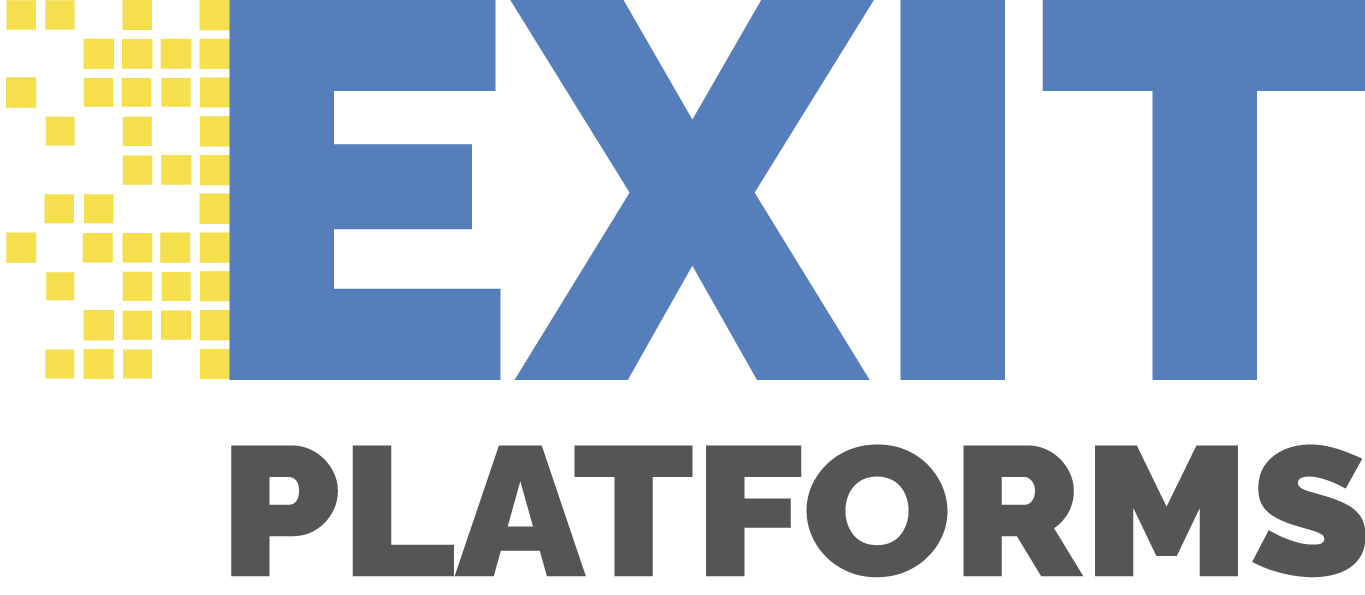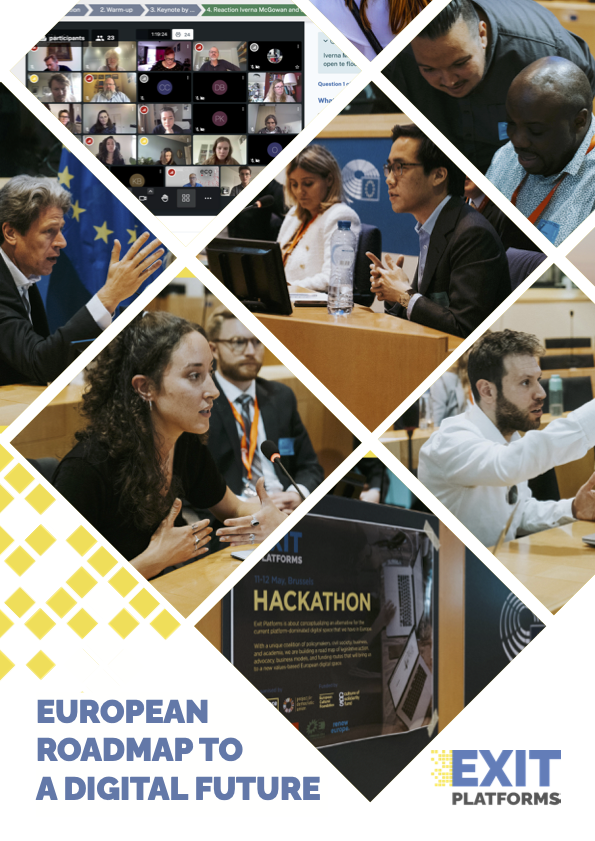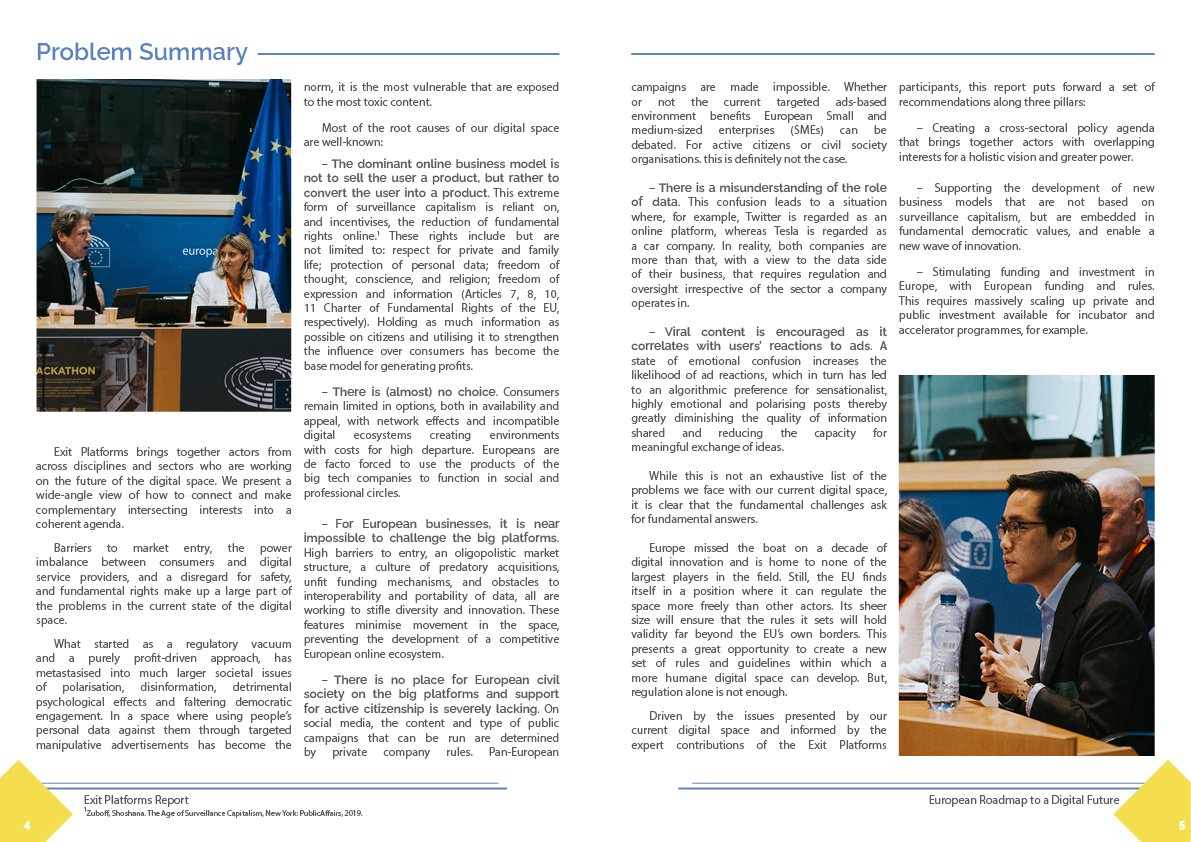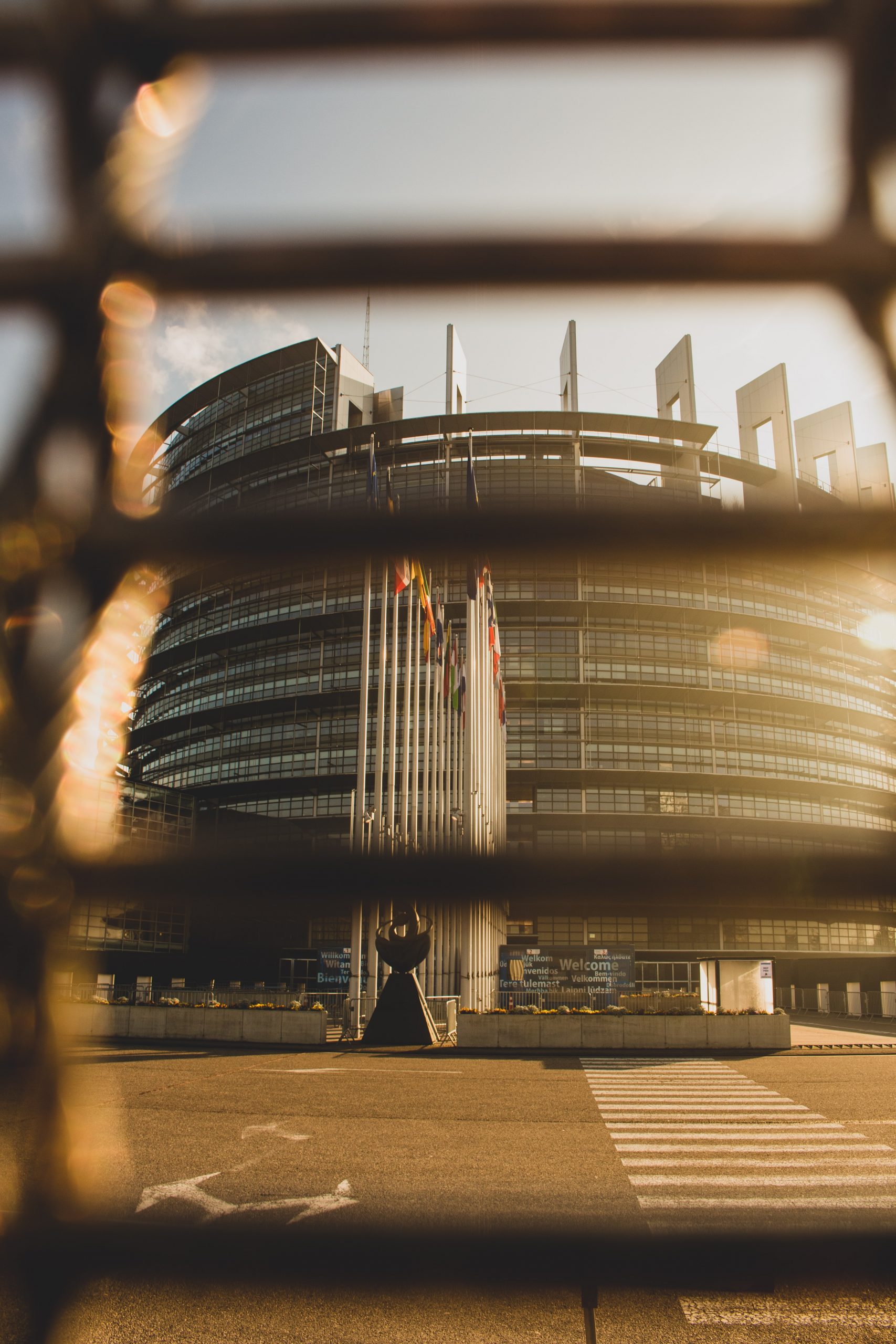a European strategy for a democratic digital space
The Project
Our mission lies in conceptualizing an alternative for the current platform-dominated digital space, both from a technical and a European policy perspective. What can the EU do to support a European alternative, a true common digital space, based on public values?
In order to do so we aim to bring together a group of activists, initiatives and experts working on creating a public digital space. Our aim is to forge a unique coalition of experts in the field of tech, freedom of speech, the commons, public sector actors and academics, that will put ideas for change forward to European policymakers.
With each digital session, different topics will be discussed in depth, with the findings and conclusions of each being feed into the hackathon in May 2022. The outcomes of the hackathon will be translated into a detailed advocacy campaign towards leading policymakers in the field of digital Europe and the next generation internet.
THE EXIT PLATFORMS REPORT
The Exit Platforms project assembles a diverse array of actors with policymakers to re-envisage European digital space and explores new possibilities to move past current dominant platforms. The report aims to inform and reshape current policy – making efforts, to develop an all-of-society debate about the future of a values-based digital space.
THE EVENTS
Hackathon in the European Parliament
11th and 12th of May 2022 – In person, Brussels
Bringing together thinkers, technical experts and policymakers to work on a strategy. A two day pressure cooker programme aimed at turning the input of the digital sessions into a coherent and convincing strategy for the EU to support an alternative digital public space.
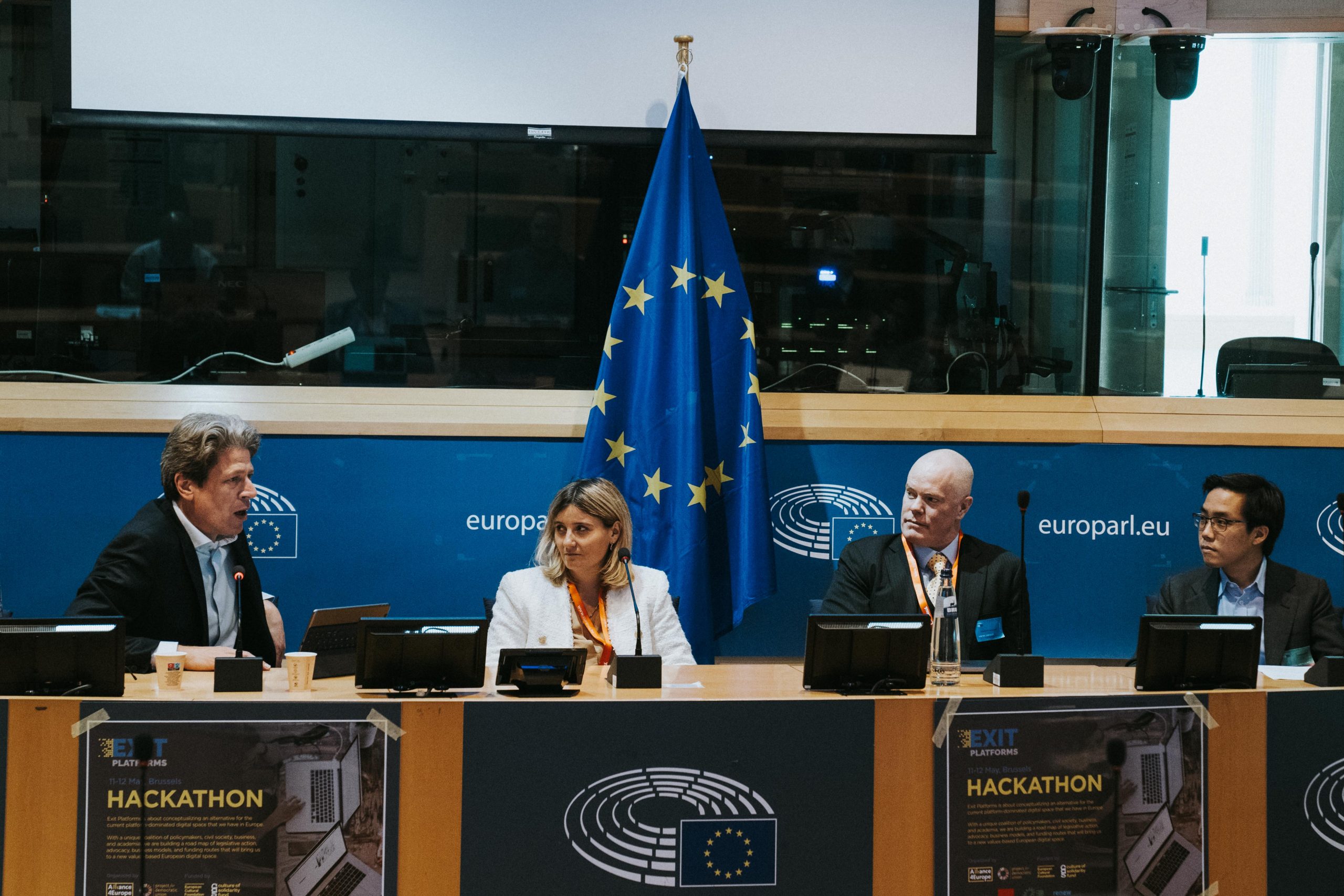
WEDNESDAY 27TH APRIL 2022 – 16H00 CET – DIGITAL WORKSHOP 4
The session focused on the topic of the public and private funding options available to new and emerging digital platforms.
For this workshop, we were joined by Alex Lakatos of the Interledger Foundation who presented on the potential of web monetization.
In the discussions that followed, we addressed the the questions:
- What funding should be in place to create alternative digital infrastructure and alternative online platforms?
- How does funding interact with other potential business models that are not deriving from the collection of private data and advertisement?
- Is the current funding landscape suitable and effective for new platforms to emerge? What is missing?
WEDNESDAY 2ND FEBRUARY 2022 – 16H00 CET – DIGITAL WORKSHOP 3
Successful and sustainable: Designing new business and operational models for new online platforms
The workshop focused on designing new business and operational models that will support and facilitate a human-centric democratic digital space. During the session we addressed: What can be taken from existing models and what should be ruled out? How can we ensure that alternatives will be sustainable, inclusive and competitive? How can legislation and policy tools be used to support new models?
WEDNESDAY 1ST DECEMBER 2021 –16H00 CET – DIGITAL WORKSHOP 2
How to break down the walled gardens – an interconnected advocacy strategy for a democratic digital space
Europe is in a prime position to lead the way in re-envisioning our digital spaces. With the backdrop of the Digital Services and Digital Markets Acts, there is currently the right attitude and momentum to achieve substantial change.
The discussion focused on the role and shape of the current European legislation and how these connect with the upcoming legislation on data, AI and beyond.
THURSDAY 14TH OF OCTOBER 2021 – 16H00 CET – DIGITAL WORKSHOP 1
Digital kick-off session – why a European alternative is needed badly
Ethan Zuckerman, American media scholar, blogger, Internet activist and former director of the MIT Center for Civic Media, set the scene by giving from an transatlantic view on the argument for a European alternative to the dominant silicon valley platforms. This was followed by a reaction from Iverna McGowan, Director of the Europe Office of the Center for Democracy and Technology, and a discussion with all participants.
The Team
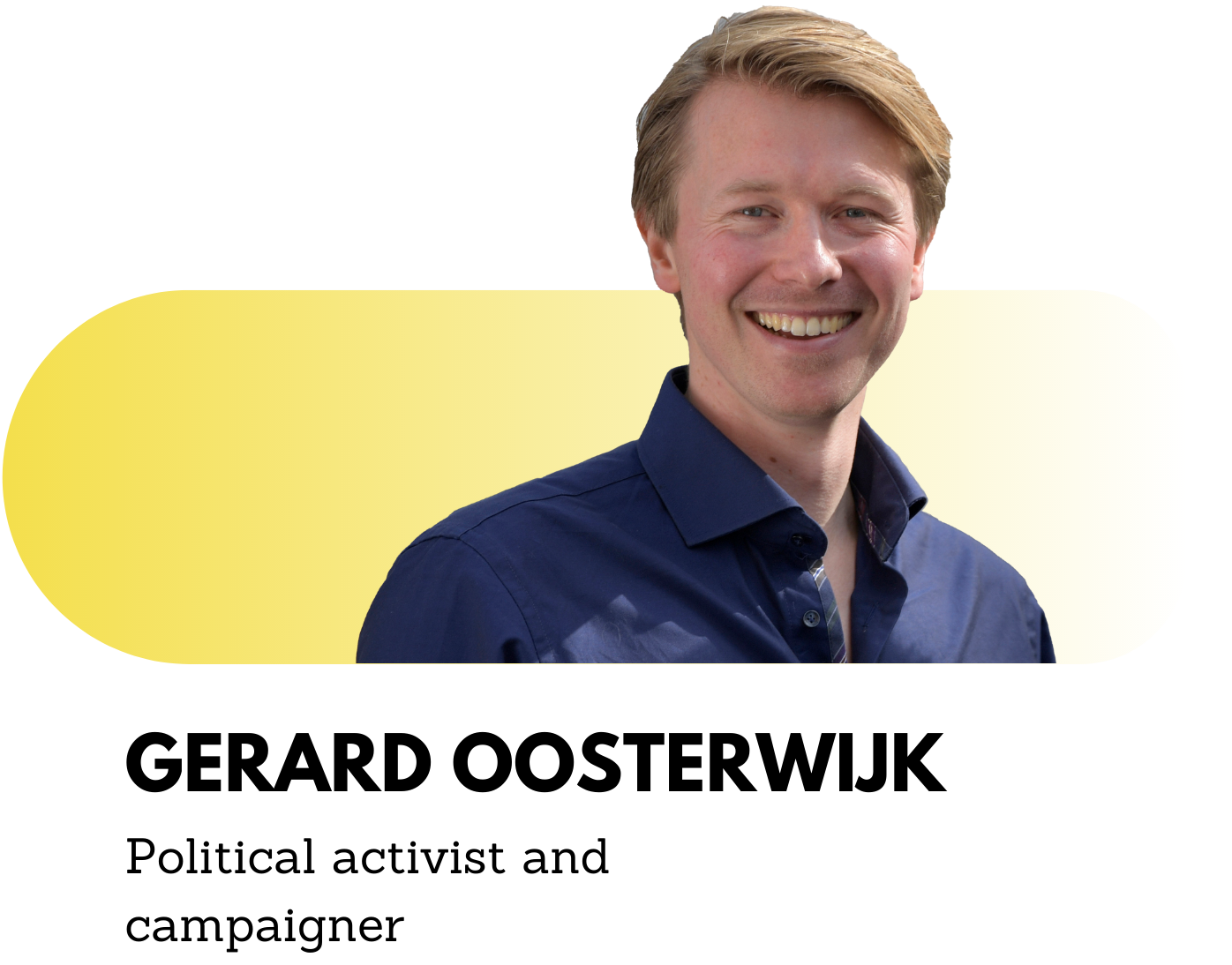
Gerard Oosterwijk is an experienced political activist and campaigner who has worked within the European Parliament as a policy advisor on regulating tech companies and taxing them through the Digital Service Tax. More recently, he has been responsible for the European dimension of the Public Spaces foundation as a steering-group member, maintaining the European Network of Public Spaces and organising several international conferences on the need for a public space on the internet. Also, he was a co-initiator of Datong, a concept of a collectivised social media network.
Benjamin Zeeb is co-founder of the Project for Democratic Union (PDU) and Alliance4Europe (A4E). Benjamin has previously worked as a journalist and tried his hand in the start-up world as the CEO of a media platform. A historian by training, he is a frequent commentator on European affairs and has co-authored two books on the future of the EU. The Cambridge Roundtable on European Order, which regards itself as an exercise in applied history, brings together high-level decision makers with prominent intellectuals and business representatives for intimate multi-day exchanges.
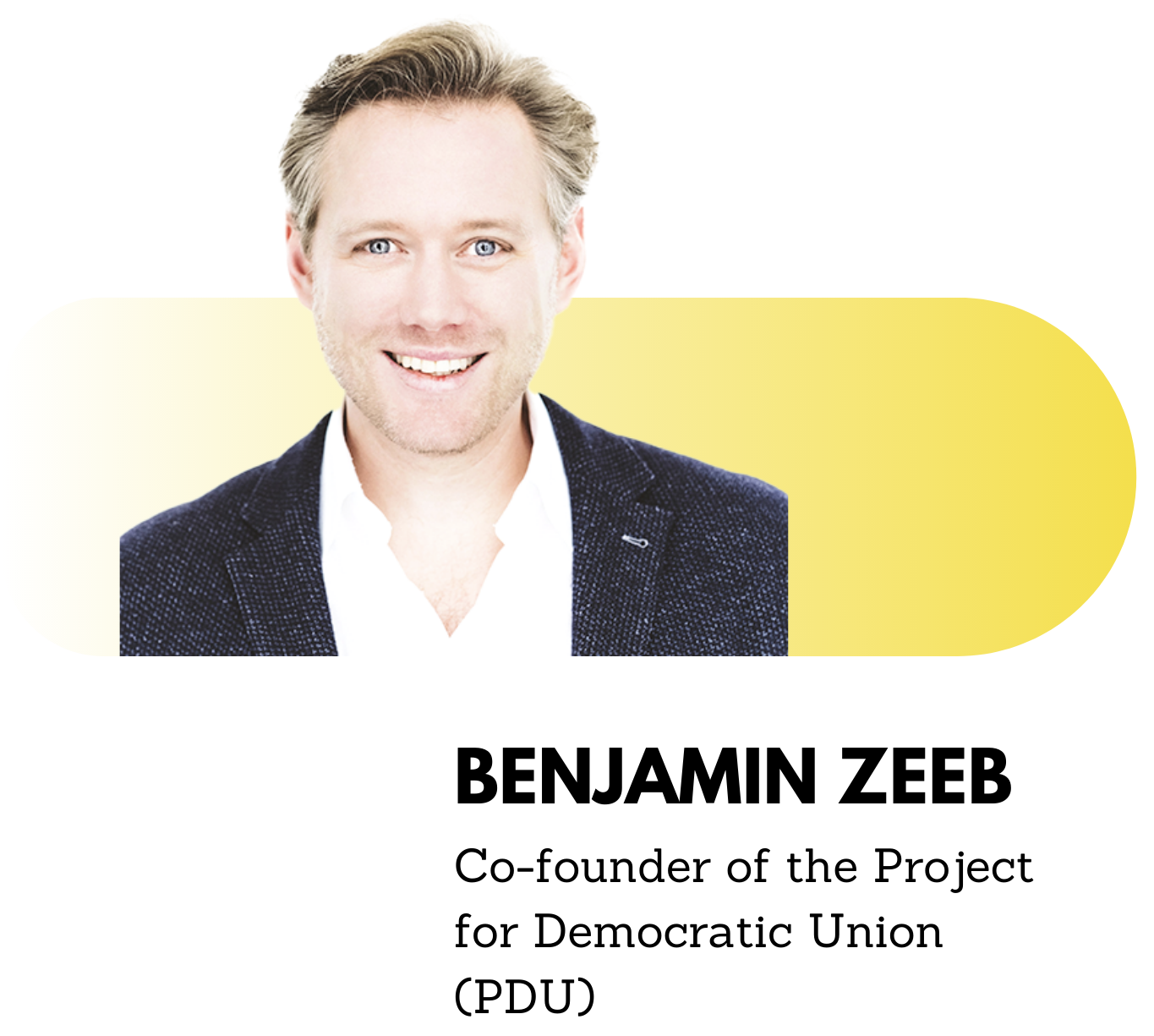
Our Organisation
The Project for Democratic Union (PDU) is a think-tank promoting the political integration of Europe. To this end, the PDU hosts regular high level events to introduce and keep current different aspects of future European integration and democracy among policy makers, cultural and academic leaders, and European business. Previous events hosted by the PDU have included participants such as Cristopher Clark, Ulrike Guerot, Sylvie Berman, Norbert Röttgen, Niall Ferguson, David Petraeus, Elisabeth Braw, or John Peete.
Using its track record and unique convening power, the PDU intends to tackle the issue of European digital citizenship and infrastructure for democracy by bringing together the foremost actors in policy, tech, business, and culture to formulate a set of guideposts informing a possible coherent European response.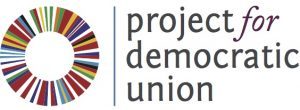
Our partners
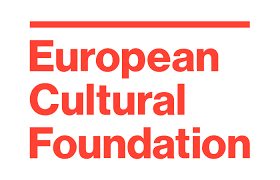
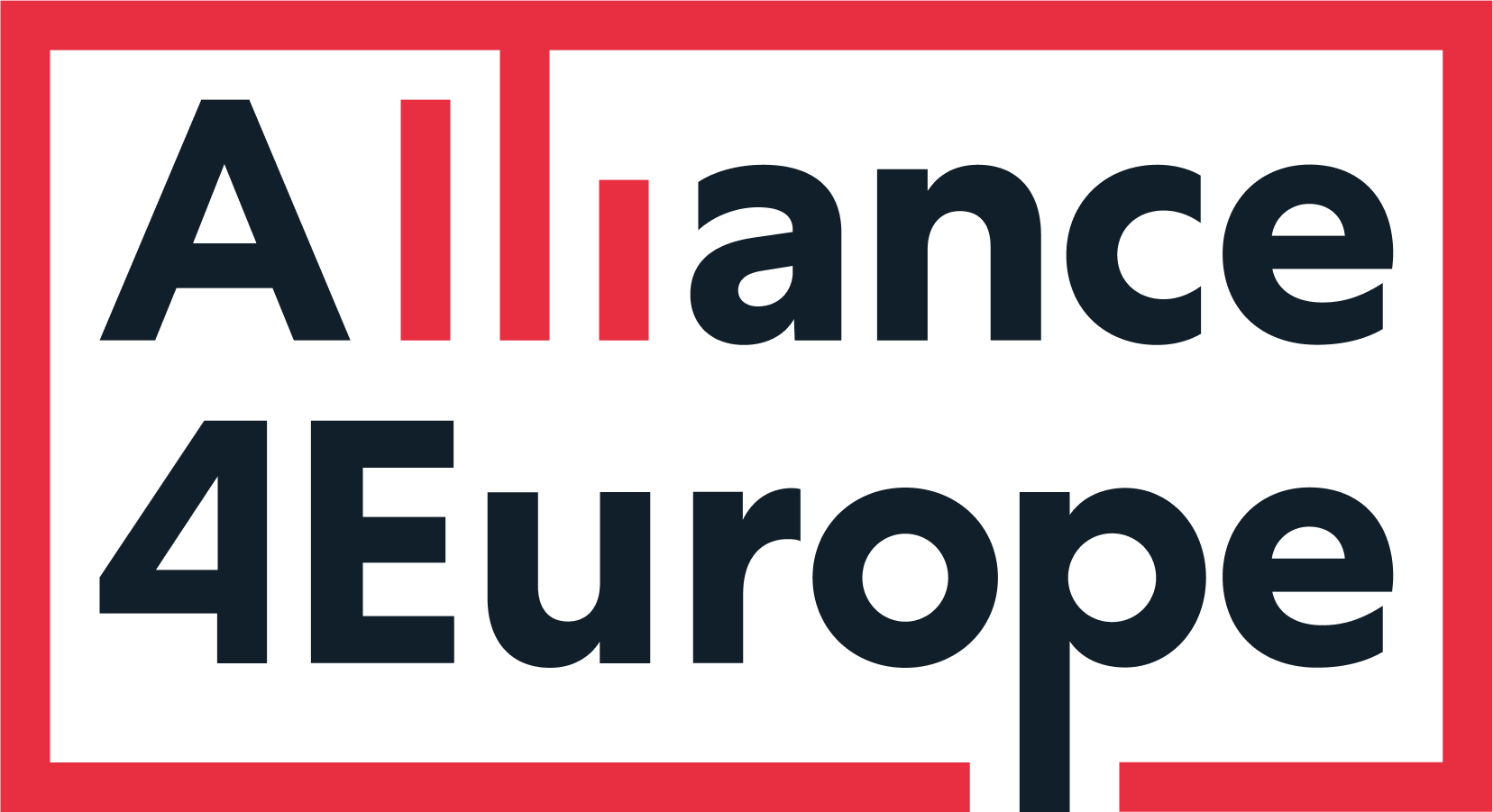
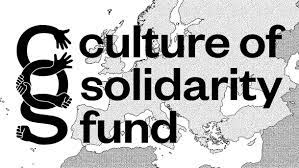
“The lack of a European demos, a true place of interaction and debate, has been holding back European Democracy. The internet in its full potential could be part of the solution. But it is not. Instead, platforms operated by big tech have created new frontiers and prevent cross-border, pan-European activism. Their walled gardens are reinforcing borders in Europe. The dynamics of algorithms on these for-profit platforms has polarised the public debate.
– Gerard Oosterwijk
“Solidarity is built on mutual understanding and is forged when you bring people from different backgrounds together. This is what is lacking in the modern digital space, where platforms and their algorithms keep us locked into filter bubbles of like-minded people with a similar background. Our digital public space needs to be recreated, not with the vested interests of the current multibillion-dollar digital corporations, but with citizens at its heart.”
– Benjamin Zeeb
